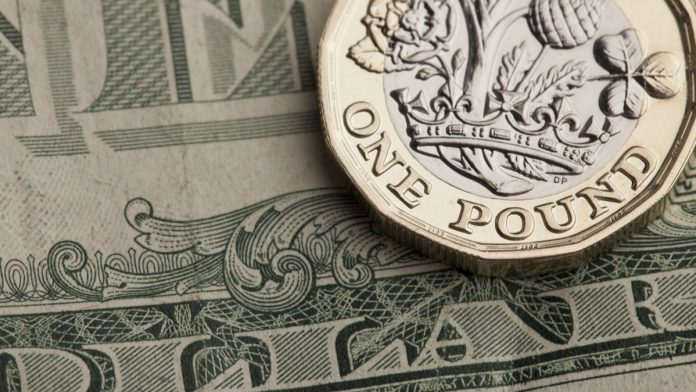The Pound is falling southwards versus the stronger US Dollar in early trade on Tuesday. The Pound versus US Dollar exchange rate is extending losses for a third straight session after closing -0.3% lower on Monday.
At 07:36 UTC, GBP/USD is trading -0.6% lower at $1.2340, as investors digest weakening UK business and consumer confidence as Brexit fears return. Meanwhile the dollar is pushing higher after signs the Chinese economy is firing back to life.
Weakening Confidence, Brexit Concerns & GDP
UK business confidence plummeted in the second week of March as the coronavirus crisis began to take a grip. Retail and service sector businesses were particularly hard hit.
A separate report by GFK showed that UK consumer confidence plunged in the first two weeks of March. Households grew more pessimistic over their finances and the broader economic outlook. The data was collected before the UK went into lock down, so the figures are likely to deteriorate further. Consumer confidence is important because when sentiment declines consumption often falls as well.
Brexit concerns are adding to Pound investors woes this morning. The EUR is urging Britain to extend the transition deadline beyond 31st December. Boris Johnson is point blank refusing to do so.
Today, investors will also look towards UK fourth quarter GDP data. Analysts are expecting 0% growth, inline with the previous revision.
US Consumer Confidence In Focus
The US Dollar is pushing higher in early trade on Tuesday despite encouraging figures out of China overnight lifting risk sentiment. Chinese factory data points to a rebound in activity, even as the rest of the world remains in lock down. The figures have helped boost risk appetite, with investors buying into stocks across Asia. US futures are also pointing to a stronger start.
Today investors will look ahead to the release of US consumer confidence data for March. Analysts are expecting the index to slump to 112 in March, down from 130.7 the previous month Given that the data is from March it includes the impact of the coronavirus outbreak on the economy.
The University of Michigan sentiment survey, last week showed that morale fell from its second highest post-recession reading in February to its lowest level since 2016 in March. There is no reason to think that today’s Conference Board sentiment survey will be any different.





